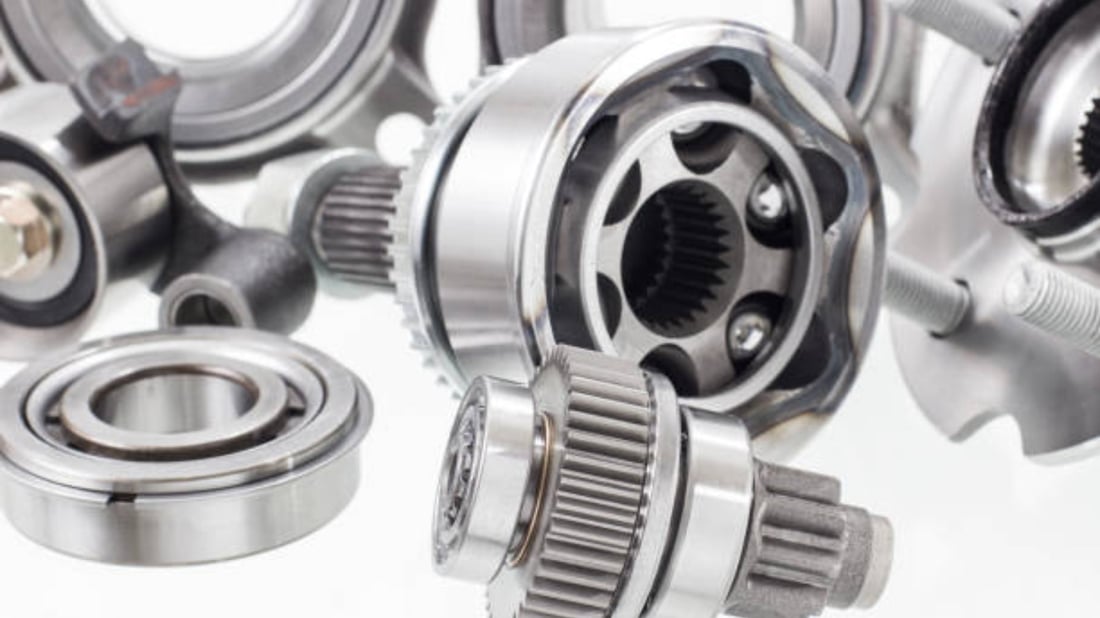Understanding Hydraulic Pumps and Cylinders: A Comprehensive Guide
Hydraulic systems are widely used in various industries for their efficiency, power, and reliability. Among the key components of these systems are hydraulic pumps and cylinders. In this article, we will delve into the different aspects of hydraulic pumps and cylinders, exploring their functions, types, applications, and benefits.
1. The Role of Hydraulic Pumps
Hydraulic pumps play a crucial role in the operation of hydraulic systems. Their primary function is to convert mechanical energy into hydraulic energy by pressurizing fluid. This pressurized fluid is then used to generate power and drive various hydraulic machinery and equipment.
There are several types of hydraulic pumps, including gear pumps, vane pumps, and piston pumps. Each type has its own advantages and is suited for specific applications. Gear pumps, for example, are known for their simplicity, low cost, and suitability for low-pressure applications. On the other hand, piston pumps are capable of delivering high pressures and are commonly used in heavy-duty hydraulic systems.
2. Understanding Hydraulic Cylinders
Hydraulic cylinders, also known as hydraulic actuators, are devices that convert hydraulic energy into mechanical force and motion. They work in tandem with hydraulic pumps to perform various tasks, such as lifting, pushing, and pulling heavy loads.
Hydraulic cylinders consist of a cylinder barrel, piston, piston rod, and a series of seals. When pressurized fluid enters the cylinder, it pushes the piston, which in turn moves the piston rod. This linear motion is used to perform mechanical work, making hydraulic cylinders essential components in a wide range of industries, including construction, manufacturing, and transportation.
3. Applications of Hydraulic Pumps and Cylinders
The versatility of hydraulic pumps and cylinders allows them to be used in numerous applications across different industries. Some common applications include:
- Lifting heavy machinery and equipment in construction sites
- Operating hydraulic presses for metal forming
- Powering hydraulic brakes in automotive systems
- Controlling the movements of excavators and cranes
- Operating hydraulic elevators and lifts
These are just a few examples of the wide range of applications where hydraulic pumps and cylinders are utilized. Their ability to provide high force and precise control makes them indispensable in many industries.
4. Benefits of Hydraulic Pumps and Cylinders
Hydraulic pumps and cylinders offer several advantages over other types of power transmission systems. Some of the key benefits include:
- High power density: Hydraulic systems can deliver high amounts of force in a compact package.
- Precise control: Hydraulic systems allow for fine control of force and motion, making them ideal for applications that require accuracy.
- Reliability: Hydraulic systems are known for their durability and long service life, even in harsh environments.
- Ability to handle high loads: Hydraulic systems excel at handling heavy loads, making them suitable for heavy machinery and equipment.
- Flexibility: Hydraulic systems can be easily adapted and customized to meet specific application requirements.
5. Maintenance and Troubleshooting
Proper maintenance of hydraulic pumps and cylinders is essential for ensuring their optimal performance and longevity. Regular inspections, fluid checks, and seal replacements are some of the maintenance tasks that should be performed.
In case of any issues or malfunctions, troubleshooting hydraulic systems can be challenging. However, some common problems include leaks, insufficient pressure, and erratic cylinder movement. Identifying and rectifying these issues often requires expertise and knowledge of hydraulic systems.
6. Choosing the Right Hydraulic Pump and Cylinder
When selecting hydraulic pumps and cylinders for a specific application, several factors need to be considered. These include the desired force and speed requirements, operating pressure, fluid compatibility, and environmental conditions.
Working closely with hydraulic system manufacturers or consultants can help ensure the right pump and cylinder are chosen for the intended purpose. They can provide valuable insights and recommendations based on their expertise and experience.
7. Innovations and Future Developments
The field of hydraulic pumps and cylinders continues to evolve, with ongoing research and development efforts aimed at improving efficiency, reducing environmental impact, and enhancing overall performance.
Some notable advancements include the use of smart sensors and electronic controls to optimize system efficiency, the integration of hydraulic systems with renewable energy sources, and the development of more compact and lightweight components.
8. Safety Considerations
Working with hydraulic systems involves certain safety risks. It is crucial to follow proper safety protocols and guidelines to prevent accidents and injuries.
Some key safety considerations include using appropriate personal protective equipment (PPE), regular maintenance and inspection of hydraulic components, and proper training for operators and maintenance personnel.
9. Cost Considerations
Hydraulic pumps and cylinders vary in terms of cost, depending on factors such as size, capacity, and complexity. While hydraulic systems may require higher upfront investment compared to other power transmission systems, their long-term benefits often outweigh the initial costs.
Factors such as energy efficiency, reliability, and reduced downtime contribute to overall cost savings over the lifespan of the hydraulic system.
10. Conclusion
Hydraulic pumps and cylinders are essential components of hydraulic systems, enabling the transfer of power and control in various industries. Understanding their functions, types, applications, and benefits is crucial for anyone working with or relying on hydraulic machinery and equipment.
By choosing the right hydraulic pump and cylinder, performing regular maintenance, and adhering to safety protocols, businesses can maximize the efficiency, reliability, and longevity of their hydraulic systems.

